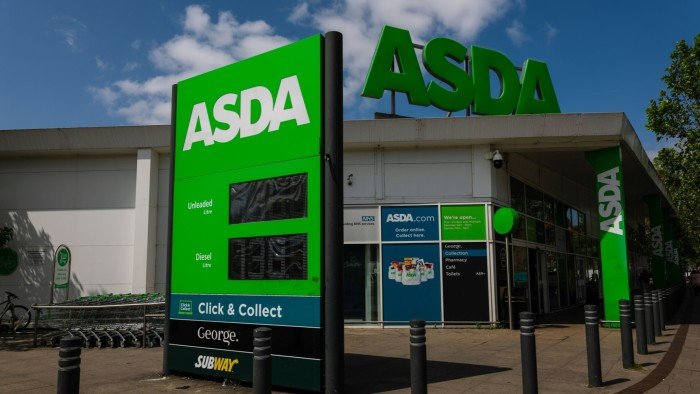Unlock the Editor’s Digest for free
Roula Khalaf, Editor of the FT, selects her favourite stories in this weekly newsletter.
Asda plunged to a near £600mn loss last year as weak trading, a costly IT upgrade and asset writedowns combined to push the troubled supermarket chain deep into the red.
The private equity owned retailer reported a pre-tax loss of £599mn, compared with a profit of £180mn the year before, according to accounts filed Wednesday at Companies House.
Total revenues rose by 5 per cent to £26.8bn in the year to December 31. However, Asda’s like-for-like food sales declined by 3.7 per cent last year off the back of poor stock availability and uncompetitive pricing, the company said.
The results underline the continuing struggles at Asda since it was taken private in a £6.8bn leveraged buyout by private equity firm TDR Capital and the Issa brothers, Mohsin and Zuber, in 2021.
TDR, now Asda’s majority owners, appointed retail veteran Allan Leighton as executive chair in November in a bid to revive the fortunes of the UK’s third biggest supermarket chain.
Asda’s loss was driven partly by a £378mn writedown related to its property estate and a one-off cost of £310mn related to the installation of new IT systems, a problematic process that has contributed to poor stock availability in stores.
But the costs of servicing the Leeds-based supermarket chain’s £4.9bn debt swelled by £160mn to £611mn last year after refinancing at higher rates.
Asda continues to cede market share to rivals, with Leighton warning in March that planned price cuts would mean Asda takes a “material” hit to profits this year in a bid to lure shoppers back from the likes of Tesco, Sainsbury’s and Aldi.
Asda now accounts for 11.9 per cent of the UK’s supermarket sales, according to industry data released on Tuesday, versus 12.7 per cent a year ago.
An Asda spokesperson said its core business “remains strong and profitable”, pointing to its “adjusted EBITDA after rent,” which came in at £1.14bn, compared with £1.08bn the previous year.
They added that its reported loss was the result of “significant one-off costs.”
